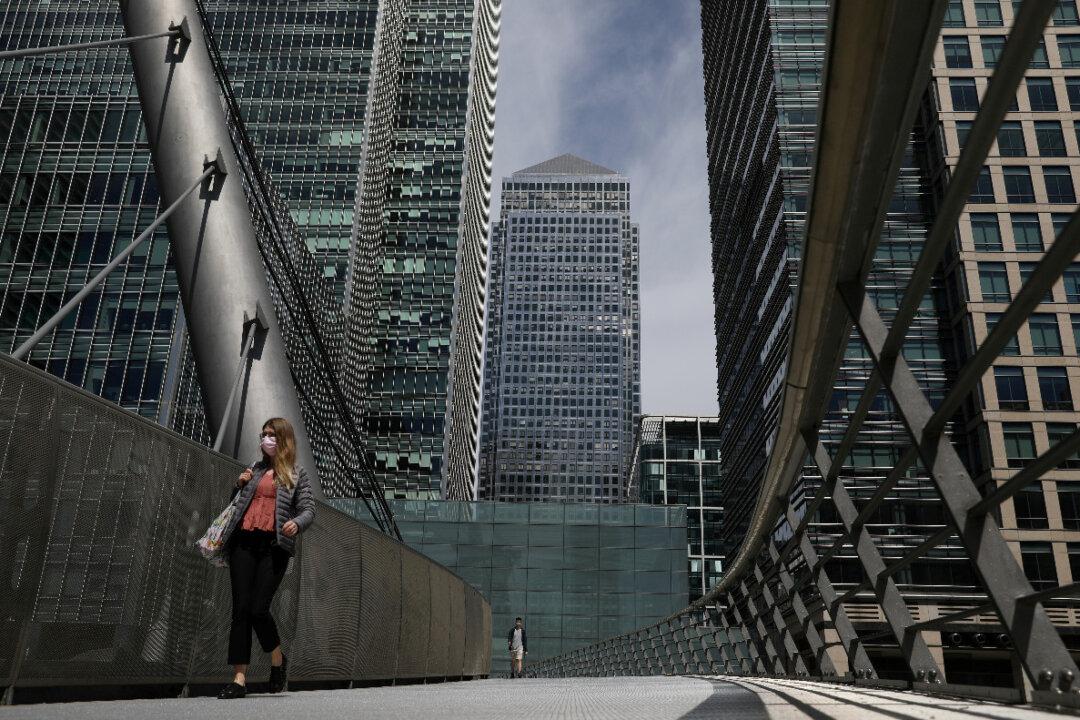The UK government will launch a media campaign this week to urge people to return to their workplaces, ramping up Prime Minister Boris Johnson’s calls to get the economy back up to speed after its hammering during the CCP virus lockdown.
Data has shown only 17 percent of workers in British cities had returned to their workplaces by early August, and last week Dame Carolyn Fairbairn, director-general of the Confederation of British Industry (CBI), said that big urban centers looked like “ghost towns.”





